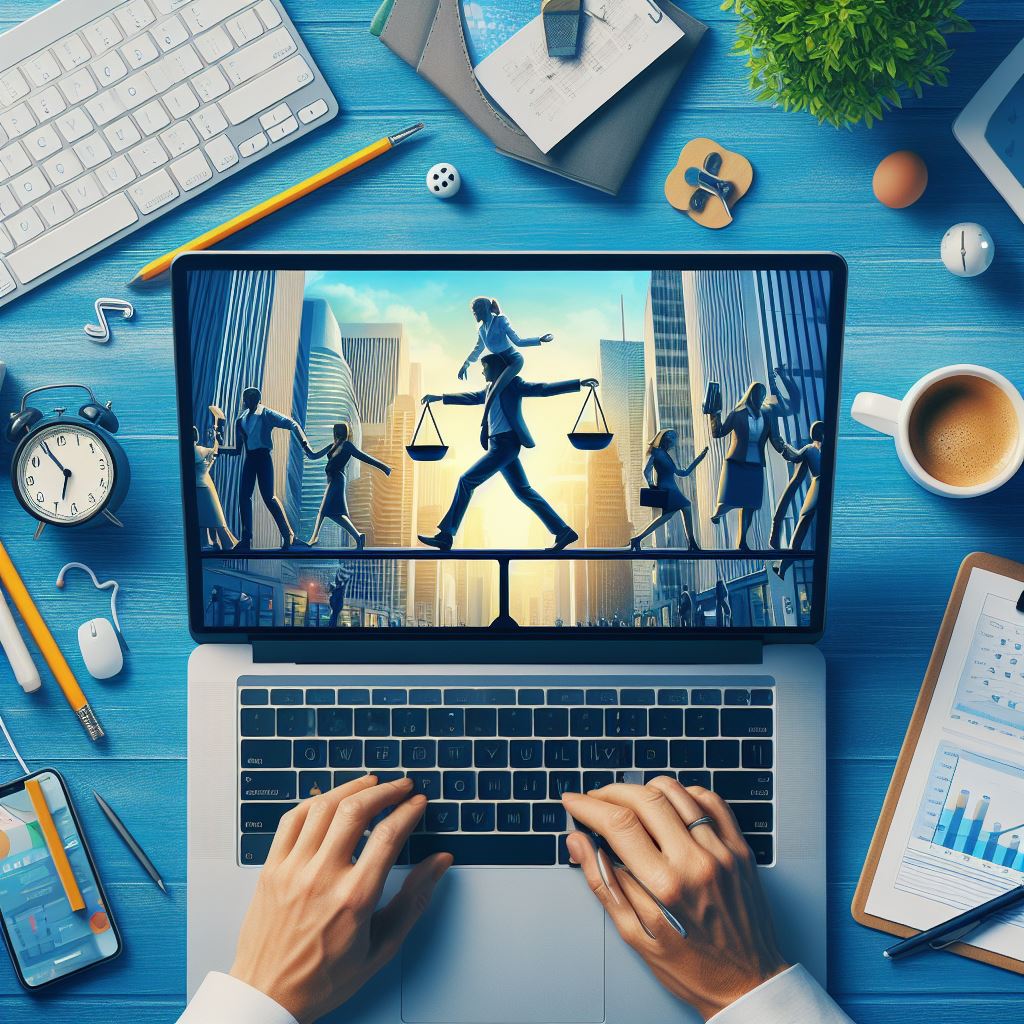In a world where the pursuit of productivity often overshadows personal well-being, the integration of artificial intelligence (AI) into the workforce has sparked discussions on redefining the dynamics of work-life balance. The idea of “AI work-life balance” encapsulates a pivotal shift in the narrative surrounding technological advancements and their impact on societal welfare. As AI continues to permeate various industries, the focus shifts from merely enhancing productivity to prioritizing the holistic well-being of individuals.
The promise of AI for well-being
As AI technologies advance, there’s a growing recognition of their potential to alleviate the burdens of overwork and improve overall quality of life. At the individual level, students and professionals alike are leveraging AI-driven tools to streamline tasks, freeing up time for leisure and personal pursuits. Christopher Pissarides, a Nobel Prize-winning economist, highlights AI’s capacity to enhance work satisfaction by enabling individuals to focus on more engaging and creative endeavors. This shift towards meaningful work not only augments productivity but also fosters a healthier work-life balance.
Also, the concept of shortened workweeks, supported by AI-driven efficiency, has gained traction as a viable solution to combatting work-related stress and burnout. Studies, such as the international trial conducted by 4 Day Week Global, underscore the positive impact of reduced hours on employee well-being and job satisfaction. By reallocating resources towards leisure and personal development, individuals experience improvements in mental health, fatigue levels, and overall life satisfaction. Companies like Microsoft Japan have demonstrated the feasibility and benefits of implementing such policies, with significant boosts in productivity and employee morale.
AI work-life balance – Challenges and opportunities
However, amidst the optimism surrounding AI’s potential to enhance well-being, concerns linger regarding its implications for the labor market. The prospect of automation threatens to disrupt traditional job roles, particularly in sectors susceptible to AI-driven advancements. McKinsey & Company’s projections of automated job displacement raise apprehensions about the future of employment. Yet, proponents argue that historical precedents suggest a potential for AI to catalyze job creation and foster greater equality in the workforce.
As we navigate this transformative era, the key lies in harnessing AI as a tool for inclusive prosperity. Rather than viewing technological innovation as a threat to livelihoods, embracing AI presents an opportunity to redefine the nature of work itself. By prioritizing well-being alongside economic growth, societies can cultivate environments conducive to personal fulfillment and collective advancement.
In essence, the advent of AI compels us to reassess our relationship with work and its broader implications for human flourishing. By embracing a paradigm shift towards prioritizing well-being over relentless productivity, we pave the way for a more equitable and fulfilling future. As we embark on this journey, the question remains: How can we leverage AI to not only enhance productivity but also enrich the lives of individuals across diverse socio-economic backgrounds?




